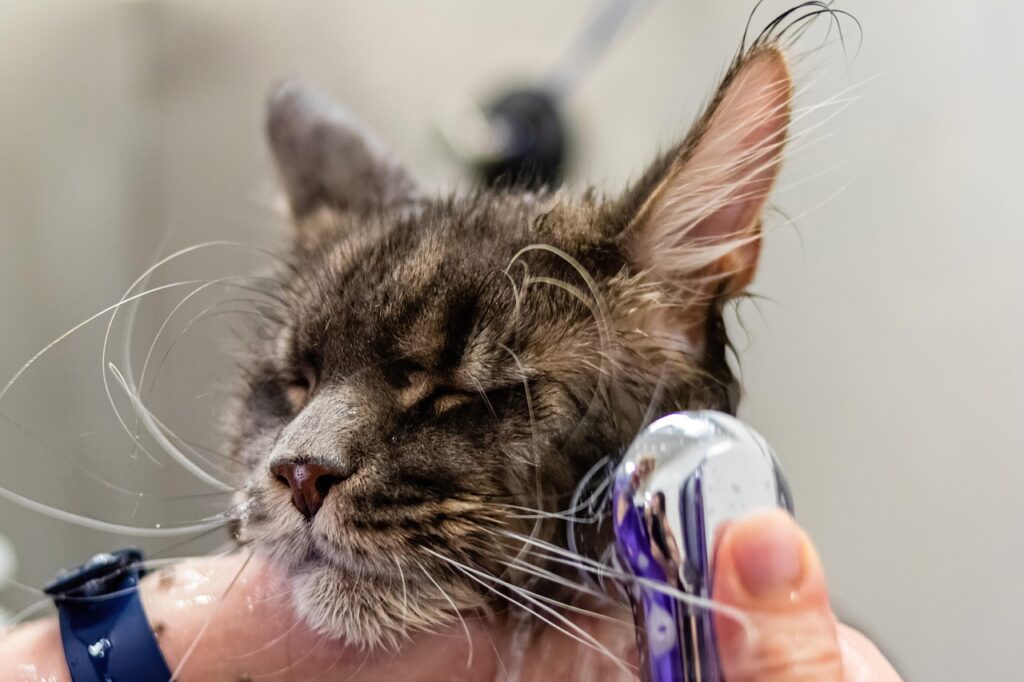Advanced Pet Care Tips for Healthier, Happier Pets

Taking care of your pet involves feeding, walking, and providing companionship. However, advanced pet care transcends beyond these daily routines, ensuring your furry friend has a long, happy, and healthy life. It’s about fine-tuning your approach, learning more about their specific needs, and using the latest practices in veterinary care, nutrition, training, and behavior.
In addition to providing physical comfort to your puppy, an inquisitive kitten, or a senior dog, advanced pet care addresses the whole picture—physical, mental, and emotional health. With the right knowledge, you can ensure your pet gets the best care beyond survival. Contrary to what they might expect, it does not harm them, it promotes their growth.
This article covers various advanced pet care strategies, from proper nutrition to behavioral enrichment, routine health checks, and more. Furthermore, we will provide you with expert advice and tips on how to make your pet’s life more rewarding and enjoyable.
Why Advanced Pet Care Matters
Pets, especially dogs and cats, are more than just companions—they’re family members. And like any family member, they deserve a level of care that is thoughtful and comprehensive. Pet care is no longer just about giving them food and shelter. Advanced pet care is about ensuring their health, well-being, and emotional happiness through various strategies that help them live their best life.
By focusing on advanced care, you’re proactively addressing your pet’s needs and preventing potential health problems before they become serious. For example, regular health check-ups can catch early signs of illness. At the same time, proper nutrition can prevent obesity, heart disease, and other chronic conditions. Similarly, proper grooming, training, and emotional care help keep your pet mentally stimulated and prevent behavior issues that arise from boredom or anxiety.
Here’s why advanced pet care should be a priority for any responsible pet owner:
- Health Prevention: By taking preventive care of your pet, you can reduce the chances of costly veterinary bills later.
- Behavioral Enrichment: Keeping your pet mentally and emotionally engaged reduces behavioral issues like anxiety or destructive habits.
- Enhanced Bonding: Providing advanced care improves the bond between you and your pet, strengthening your emotional connection.
- Longer Lifespan: Pets that receive top-notch care live longer, more comfortable lives.
By understanding the principles of advanced pet care, you’re not just maintaining your pet’s life—you’re improving it.

1. Nutrition: Fueling Your Pet’s Best Life
One of the most important aspects of advanced pet care is ensuring your pet’s diet is tailored to their needs. Like humans, pets require balanced nutrition to maintain energy levels, support immune function, and promote longevity.
The Basics of Pet Nutrition
A balanced diet is essential for both cats and dogs. Pet food comes in a variety of forms, including dry kibble, canned food, and raw food. The ideal choice will depend on your pet’s breed, size, age, and health condition.
Key Components to Look for in Pet Food:
- Protein: High-quality protein (chicken, lamb, beef, etc.) is crucial for muscle growth and repair. Dogs, in particular, need animal-based protein sources for optimal health.
- Fats: Healthy fats provide essential fatty acids, which are important for coat health, brain function, and energy.
- Vitamins & Minerals: These ensure your pet’s immune system stays strong, bones remain healthy, and organs function optimally.
- Fiber: Fiber is necessary for digestive health and regular bowel movements.
Breed-Specific Diets
Certain breeds have specific nutritional needs. Larger breeds, for example, may need food to support joint health due to the stress on their bones. Smaller breeds may need higher-calorie foods to meet their energetic requirements.
Supplements for Enhanced Health
In advanced pet care, you may choose to supplement your pet’s diet with additional nutrients:
- Joint supplements help prevent or treat joint issues, especially in older dogs or large breeds.
- Omega-3 fatty acids promote a healthy coat and skin while supporting cognitive function.
- Probiotics: Can improve digestion and immune function.
Always consult your veterinarian before adding supplements to your pet’s diet to ensure they are necessary and safe.
Raw and Home-Cooked Diets
If you prefer feeding your pet a raw or home-cooked diet, it’s important to do so with caution. Homemade meals can offer a more natural approach but must be balanced and nutritionally complete. Always work with a vet or a pet nutritionist to develop a safe and appropriate meal plan for your pet.

2. Behavioral Training: Nurturing Your Pet’s Mind
Training your pet goes far beyond teaching them basic commands like “sit” or “stay.” Advanced pet care incorporates behavior management techniques that promote mental stimulation, reduce anxiety, and prevent behavioral issues from forming.
Positive Reinforcement Training
Positive reinforcement is the most effective and humane way to train your pet. By rewarding your pet for desired behavior with treats, praise, or toys, you create a positive association that encourages them to repeat the action.
- Consistency is Key: Use the same cues and rewards to avoid confusing your pet. Consistency helps your pet learn faster and reinforces good behavior.
- Training Sessions: Keep training sessions short and sweet. Dogs, in particular, can lose focus after a few minutes, so aim for 5–10 minutes per session.
Mental Stimulation
Dogs and cats need mental stimulation to prevent boredom. Pets that aren’t mentally engaged are more likely to develop behavioral problems, such as excessive barking, scratching, or destructive chewing.
- Puzzle Toys: Invest in interactive toys or puzzle feeders that challenge your pet’s mind.
- Training Games: Teaching new tricks or practicing obedience can mentally tire out your pet healthily.
Socialization
Socialization is vital for the future well-being of young puppies and kittens. Exposing your pet to different people, places, and animals helps them feel comfortable and confident in various settings.
- Puppy Classes: Puppy socialization classes can be a great way to expose your pet to new situations.
- Playdates: Regularly interact with other pets to help reduce anxiety and improve social skills.

3. Preventive Health: Proactive Measures for Lifelong Health
Advanced pet care emphasizes the importance of preventive health measures that protect pets from common illnesses and injuries, ultimately extending their lifespan.
Routine Vet Visits
Annual or bi-annual vet visits are crucial for keeping your pet healthy. During these visits, your veterinarian will perform thorough check-ups, vaccinations, and screenings for common health problems like heartworm, ticks, fleas, or diabetes.
Vaccinations and Parasite Control
Ensure your pet is up-to-date on all necessary vaccinations and parasite preventatives. Core vaccines protect against rabies, parvovirus, distemper, and other life-threatening diseases. Flea, tick, and heartworm preventatives are equally important, especially if your pet spends much time outdoors.
Dental Care
Your pet’s dental health is a major aspect of their overall health. Many pets suffer from periodontal disease, which can lead to tooth loss, bad breath, and even organ damage.
- Brushing Teeth: Brush your pet’s teeth regularly using a pet-safe toothpaste.
- Dental Chews and Toys: These can help keep your pet’s teeth clean and gums healthy.
- Professional Cleanings: Regular professional cleanings at the vet ensure thorough tartar removal.
4. Grooming: Maintaining a Beautiful and Healthy Coat
Grooming is not just about making your pet look good; it’s essential to maintaining their health.
Coat Care
Regular brushing helps to remove dirt, dead hair, and tangles from your pet’s coat. The frequency of grooming depends on the type of coat your pet has. Long-haired breeds like the Shih Tzu or Persian cat require frequent grooming, while short-haired pets may need less.
Nail Trimming
Long nails can cause discomfort and even injury to your pet. Regularly trim your pet’s nails to ensure they’re not too long. If you’re unsure how to trim your pet’s nails, ask your veterinarian or a groomer for guidance.
Bathing
Bathing your pet too frequently can dry out their skin, but an occasional bath with a pet-safe shampoo helps keep their coat shiny and their skin healthy.

5. Emotional and Mental Well-being: Enhancing Your Pet’s Happiness
Just like physical health, your pet’s emotional well-being plays a significant role in their happiness. Pets need love, attention, and mental stimulation to thrive.
Stress Reduction
Pets can become stressed for various reasons, including environmental changes, separation anxiety, or lack of stimulation. Help your pet manage stress by providing a calm environment and maintaining routines.
Bonding Activities
Spending quality time with your pet builds trust and strengthens your bond. Whether it’s cuddling, playing, or simply being together, bonding time is essential for your pet’s emotional health.
Conclusion:
Advanced pet care requires a comprehensive approach to meet your pet’s physical, mental, and emotional needs. Focusing on their nutrition, behavior, health, grooming, and well-being gives them the tools they need for a fulfilling life.
The best thing about advanced pet care is that it improves your pet’s quality of life and strengthens the bond you share with them. You’ll be more in tune with their needs; in return, they’ll reward you with loyalty, companionship, and love.
As a pet owner, you are responsible for providing the best care possible. Start implementing these advanced pet care practices today, and watch your pet flourish!
FAQs
1. How can I improve my pet’s diet?
Improve your pet’s diet by selecting high-quality food that meets its specific nutritional needs. Consider consulting a veterinarian for tailored recommendations based on your pet’s breed, age, and health condition.
2. How often should I take my pet to the vet for check-ups?
It’s recommended to schedule annual or bi-annual check-ups for healthy pets. However, pets with health concerns or seniors may need more frequent visits.
3. What are some signs my pet may need behavioural training?
If your pet exhibits excessive barking, destructive chewing, aggression, or fearfulness, it may be time for behavioural training. Early intervention can prevent these behaviours from becoming ingrained.
4. How do I groom my pet at home?
Grooming at home includes brushing your pet’s coat, trimming nails, and cleaning their ears. Invest in proper grooming tools, learn basic techniques, or seek professional help.
5. How can I provide mental stimulation for my cat?
Provide your cat with toys, climbing structures, scratching posts, and interactive playtime to keep their mind active and prevent boredom.

















Recent Comments